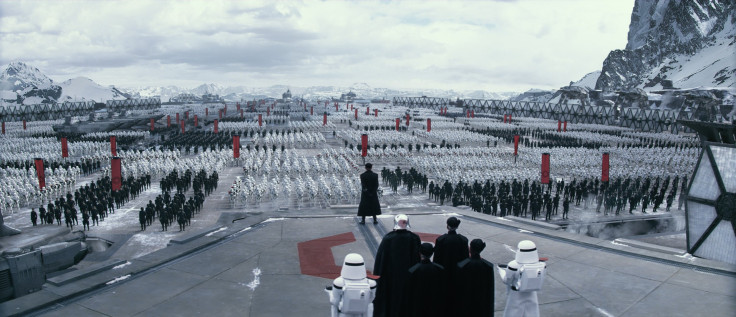In Star Wars: The Force Awakens, the galaxy seems to be at peace, until that peace is decisively shattered by the nascent First Order. The attack by the offshoots of the old Empire give the lie to the New Republic’s founding principle: That peace has come back to the galaxy. General Leia knew it wasn’t true, and good for her. That didn’t help the Galactic capital of Hosnian Prime. Truth is, the Star Wars galaxy is as far from a lasting peace as ever, thanks to Palpatine. As for the future, we need only look to Isaac Asimov’s Foundation series.
Star Wars and Foundation: A Hint Of The Future
Star Wars and Foundation are, believe it or not, very much alike. Both start in the backdrop of a Galactic Empire. In Foundation, it is benign and collapsing, akin to the Old Republic. In Star Wars, the Empire is autocratic, tyrannical and doomed; the Old Republic was the golden age that held the galaxy in a thousand generations of peace. Asimov’s Galactic Empire had done the same. Sure, Star Wars has lots of aliens and also the Force, but both worlds concern the rise and fall of Galactic-size states. And Foundation shows the future.
In Foundation, the great psychohistorian—which you may as well translate as prophet, but in a scientific kind of way— Hari Seldon foresees the collapse of the Galactic Empire and the chaos in its wake. Thirty thousand years of chaos before a new order arises and restores peace to the galaxy. He creates two Foundations at opposite ends of the galaxy to bring that down to just one millennium, but that’s not relevant to Star Wars for the moment. It’s the terrors of the collapse of an age-old, galaxy-wide system.
The Galactic Empire, once broken, cannot be rebuilt. That is true in Foundation, and it’s true in Star Wars. Look to the old Expanded Universe (EU) and you’ll understand Palpatine’s true legacy. It’s not two-ish decades of autocracy followed by a return to freedom. It is the permanent destruction of the institutions of the Old Republic… and, maybe most importantly of all, its reputation as an eternal force. The destruction of the Senate and the Jedi Order aren’t easily fixable. Think of the British: A generation and a half ago, they ruled a quarter of the world’s surface area. Now the Empire is gone. London is as strong as ever, but the British Empire shall never rule the world again, despite the Commonwealth, despite the monarchy, despite the same institutions. What is broken cannot be remade.
The New Republic, whether in the EU or in the new continuity, can never fully replace the Old Republic as a source of stability in the galaxy. That’s not because the Old Republic was so great. The prequels (oy) showed us that the Old Republic’s systems were rotten and corrupt. But its stability ultimately came from its sheer longevity. The idea of a galaxy without a Republic was inconceivable… until it happened, driven by a megalomaniac wizard. The institutions of the New Republic are almost certainly better, but it doesn’t have the sense of permanence.
Likewise, in Foundation, the broken Empire will be replaced a thousand years down the line by a lasting Second Empire . But in between are a thousand years of chaos and warlordism, as the old institutions fall apart. It happened with the Roman Empire here on Earth. It wasn’t a total collapse, but it sent the West back into the Dark Ages. And when order finally rose again, it was under new institutions, starkly different from the old.
The New Republic cannot hold. As in the EU, Palpatine’s destruction of the old order has lasting consequences. In the EU, the New Republic waxes and wanes over time, occasionally falling to new Galactic Empires, sometimes of the Sith, sometimes not. The sheer stability of the Old Republic era never returns. It won’t do so in the new movies, either. Can the New Republic defeat the First Order and survive for a century or two, far beyond the domain of the movies? Sure. But it takes a long, long time to restore the legitimacy of a thousand generations, the seemingly eternal Republic and Jedi Order. As in Foundation, the old order is gone, never to return.

















